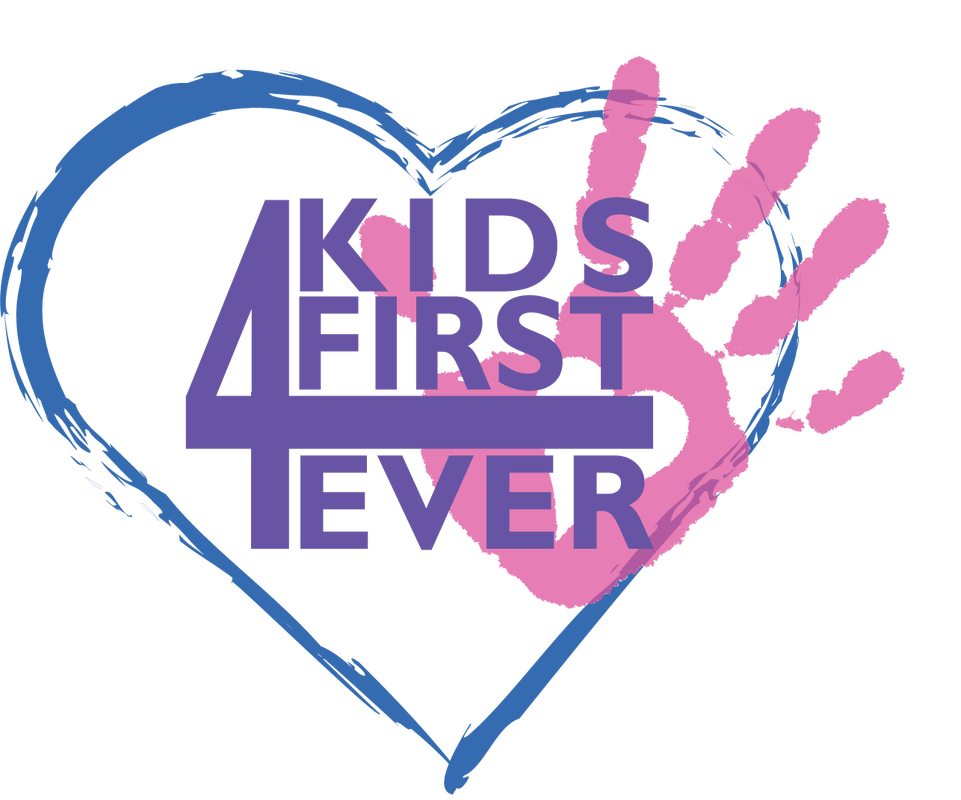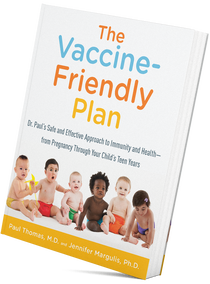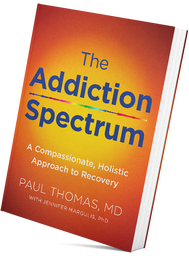PDF:TEXT:Dr. Paul 0:19
Good morning CHD Welcome to paediatric perspectives. This is the program that focuses on everything pediatrics, what we need to know to keep our children healthy and happy to look at the news through the lens of a pediatric perspective. We don't diagnose. We don't treat. We don't give medical advice, but we give you a lot of information that I think you'll find extremely useful. I'm your host, Dr. Pol. And welcome to today's episode, I have the privilege of bringing back one of our favorite guests, Dr. Larry Palacky. And he and I are going to be talking about what's in the news, actually, for the several weeks now this triple Demmick, the RSV, flu and COVID all hitting at once. And now you're hearing on the news. It's providing long, prolonged symptoms that are going on weeks, even a month or longer. Let me start with that. Larry, are you seeing this in your practice? Because I know we're interrupting you from your practice, right as we speak. What are you seeing this winter? Lawrence Palevsky, M.D. 1:23 Hi, Paul, good to be here again. Well, you know, kids get sick in the winter. And they're going to get respiratory illnesses, they're going to get gastrointestinal illnesses. And I'm not seeing a rash of a lot of sick kids. But in the New York area, of course, there are a lot of sick kids. And one of the things that I have noticed over the years, is that we ignore the fact that we're indoors more in the winter. So we have lower levels of vitamin D, which can lead to the respiratory illnesses happening more, we sleep improperly, because we're utilizing much more energy in the winter than we should be. So we're not doing what the animals do, we're not resting more, we're not sleeping more, we eat more than we should in the winter, because we just can't, we don't have the reserves. And we're also eating a lot more sugar in the winter. And eating poorly in the winter makes for a very stressed environment. And if there's anything that we know all about the body, is it when you stress it out, it's going to have to get sick, in order to clean out all the chemicals that we accumulate from stressing out. So more often than not the families in my practice, understand my philosophy and work with it, they understand that they're indoors, more, less vitamin D, poor diets, not sleeping enough, not resting enough. And and so they make the accommodations during the winter, what I find is that if you go to the emergency room, and you get a swab stuck into your nose, all you're getting is an identification of genetic material of a virus. But you can never prove whether the identification of that genetic material of the virus comes from the outside that you breathe in, or actually comes from your own cells of your own body that broke apart in your nose that expressed that genetic material. And you can also never know whether some of that genetic material that you're attributing to a virus actually came from the bacteria that also broke up in your nose that was identified on the swab. And so people have this interesting understanding that if you don't have the illness, you don't have the germ. And quite frankly, that's incorrect. Dr. Paul 4:14 We're colonized with all sorts of germs all the time, trillions Lawrence Palevsky, M.D. 4:18 and trillions, hundreds, hundreds of trillions of bacteria and pieces of genetic material we attribute to our viral. So that's that's that's the most fascinating thing to me is that we don't even understand that some of that viral expression that they may identify in a nasal swab was actually exiting our own body and not something that we breathe in Dr. Paul 4:47 or you were just colonized. So just take take the viewers back to when I was in a very, very busy practice. I mean, we had over 15,000 active patients every winter so Already in December peeking in January, February, we would have a handful of kids, usually infants who are sick enough to require oxygen, they would end up in the emergency room and sometimes hospitalized for oxygen support. And they used to do those swabs. I don't know if he ever did this thing where we did a whole respiratory panel, I would get back a report that had 30 different possible causes. And it was, you know, from the bacterial causes that can cause pneumonia, whether it's, you know, H Flu, pneumococcal moraxella, you name it right down to all the various rhinoviruses add no viruses, cold viruses, coronaviruses, we had Corona viruses around folks were waiting for COVID, RSV, and the flu, the interesting thing I found was at the height of the flu season, okay, where it's all over the news, the maximum return rate for positive flu was somewhere between five and 10%. ever write it. So this, these were people who looked like they probably had the flu, and yet they didn't have the flu, yet, so. And the same holds true for ours illness, flu like illness. And the same was true for RSV. And the same was true for COVID. And so this trifecta they're talking about, it still represents a minority of the causes of having a runny nose cough, fever congestion, Lawrence Palevsky, M.D. 6:20 right? You see, that's the challenge that I've been facing for decades, is that we only consider that when children and adults gets sick. It can only be from an infection, we would never, ever consider stress, too many toxins. 20 poisons, the elimination of excess wastes and impurities. The being rundown, we would only think that the only way to get sick is from a germ. And that is just not true. The body gets sick as a way to save itself from dying. Most of our upper respiratory illnesses, the reason the body produces mucus is to take wastes out of the body. The reason we develop cough, is because we have wastes that we have to get rid of out of the airway. Same for vomiting and diarrhea and rashes. So these are body saving mechanisms to keep the body from holding on to these toxins and wastes. Dr. Paul 7:28 Yep. So actually, Larry, let me let me ask you another question relating to what you just talked about. Parents are always looking for a simple solution for let's just say the cost. Let's start with that one. And you just said it's an important mechanism for eliminating toxins? Yeah, or even the virus for that matter. But what do you say to folks who want instructions on which cough syrup should I use? Lawrence Palevsky, M.D. 7:52 All right? Well, I I don't, I don't recommend or utilize over the counter medicines. In my experience, the most important thing to do is spin the mucus. And the reason you thin the mucus is because it allows it to drip. And once it trips, all of the mucus can then come out, then the cough Dr. Paul 8:13 can stop. And so many of those off medicines are drying, they're gonna thicken the Lawrence Palevsky, M.D. 8:17 goods. Correct. So all you have to do is hydrate, warm fluids, teas, broths, soups, steam baths, neti pots, warm baths, and let the mucus run. And when the mucus comes out, it's taking the excess debris, all the wastes and inflammation that accumulate in the body. So I don't recommend cough suppression, you know, essential oil, massages, teas. As I said, I use some herbs called gemo therapies that parents have that are very good for coughs. The goal is not to suppress the cough, the goal is to get out from the airway, what's tickling the airway? Dr. Paul 9:00 Yep. Okay. I absolutely agree with you. That here's what parents need to hear from us. You and I have got to solve this problem for them. Okay, I'm sure you've gotten calls in the middle of the night or on the weekend. And a young child's infant, or toddler or whatever, is coughing a lot. They're breathing faster than normal, they've got a fever, and they're just unhappy. And the parents are getting nervous. I think I need to take my child to the emergency room. What is your thought process? And how do you help them sort of triage because you can't always bring them into the office at the middle of dieters the weekend, right? But we also you and I know that keeping kids out of the emergency room is pretty important. Correct? Lawrence Palevsky, M.D. 9:45 Well, a lot of times what I'll do is I'll either FaceTime with the family or I'll ask them to send me a video. So I can get a sense of, you know, where is the child on the continuum of healthy versus needing To go to the emergency room, then my job as a clinician is to keep the kid out. And so once I get a sense of the fever, the kidney, the breathing fast, the breathing card, the wheezing. Paul, I have taken care of wheezing kids who were happy in some not so happy in the home by making recommendations for diet for beverages, or an herbal concoctions, essential oil and massages, and certain other environmental advice that quiets the environment reduces stimulation. And I've watched those kids get better without having go to the ER, you know, my my cut off obviously, is a kid who's hypoxic. And for those parents who are really, really concerned, irritability, and inconsolable. bility is often one of the first signs of decreased oxygen. So those are the kids where I may send them. But in the most part, I do a lot to kick them all. Yeah, Dr. Paul 11:06 you said something that I've found to be so true, as experienced clinicians, and I'm retired folks, but I did this up until very recently, when you can see the baby. So like you said, if it's FaceTime or a video, you and I almost know instantly, that baby's fine, or oh my gosh, they're in trouble. Rather than we know which parameters to look at, they now have Pulse ox is that if done properly, you can even make it work on an infant. Not always. But they're not expensive. This can be in a parent's kit at home that just have a pulse ox. But find yourself a doctor like Dr. Larry Polewski, who actually will interact with you in a live video format. Boy, I mean, we talked about being toxic looking, right? I mean, we just know that this, this little one is in trouble they need to be seen. And they will also know instantly, I've had several instances where it's a friend or a relative and they're, they're worried and they we get on and I see the child playing in the background. And I know immediately that kids not needing to go to the ER. Lawrence Palevsky, M.D. 12:09 So I think you and I both know that, that most of Pediatrics is connecting to the parents and the grandparents. So it was caring for the kid, just so that the Guardians feel like somebody heard them, somebody held their hand, somebody listened, and somebody was there to take care of them. Because oftentimes, as you know, the kids are better in better shape than the parents. Yeah. Dr. Paul 12:37 So we cannot leave an episode on infectious disease type topic without talking about the vaccines. Because isn't it interesting that whenever the news is getting us all of trying to get us afraid about a certain in this case, the triple Damak, the RSV flu and COVID Oh, guess what, you have a COVID job that's been approved down to age six months, we have flu shots that have been an annual ritual for what over a decade by far, two decades. And now folks, we have an RSV product that you can give. One of them's for pregnancy, and now they've got something you can give to newborns. You're in practice, when what are you doing with regards to these RSV flu and COVID jabs? Well, Lawrence Palevsky, M.D. 13:20 as most of the people know, who know my practice, I don't sell the shots in my office. So if parents want them, they can go to another pediatricians office to get them. And my job is not to tell them to get it or not to get it. My job is to give them informed consent. Excellent. And again, Paul, that the most likely reason for illness in the winter is not some virus that new to come into the winter environment and wasn't around any other time of year. These, these microorganisms are always around. And as you said, Paul, I've had kids who have gone to the emergency room, they do a nasal swab, and seven viruses come up on nasal swab. So I look at the parent that I say, Well, what did the doctor say that your kid had? And the parent says the doctor did. So identifying these micro organisms in the emergency room and finding as you found 30 sometimes does not make a diagnosis of flu like illness is not necessarily due to an infection. And let's go back to the basics all What did grandma and great grandma say when their kids had flu like illnesses? Get into your pajamas, get into bed. I'll run the kettle. I'll run the bath. Close the lights sweat it out, drink lots of fluids, put a cloth on your head, go to sleep. And that's really what the answer is, eat less, do less, drink more, and just support the child or the adult through the illness. What we have come to in our culture is getting sick is not allowed anymore. Getting sick is actually a sign of weakness, when in fact, getting sick is a sign that your body is strong, and can purge any amount of inflammation that needs to, which is sickening the body if it stays in the body. So getting a flu like illness is actually a sign that your body is strong. Dr. Paul 15:51 Yeah, I would highlight what you said, which was, first of all, it really doesn't matter what pathogen we identified. I mean, you and I, Larry, no RSV when we see it, it just has its own gravity. That's, for the most part, it doesn't matter. I mean, knowing that it's RSV, we can know, just by looking and listening, and hearing the story. All that does is tell those Yeah, those RSV kids, it lingers, right, we started off wondering, Well, what about this thing that's lasting for two to four weeks? Well, RSV can do that. But you can also get one thing on top of another that can do that. Overall, it doesn't even matter what it is, as long as they're not sick enough to go to the hospital, they should do exactly what you said, get rest, hydrate, don't eat sugar and processed foods eat less. And Grandma was right, right. Yeah, I Lawrence Palevsky, M.D. 16:43 mean, you know, just to dovetail what you said, mucus is produced in the body, to help us protect from threats that come in, and to increase the removal of threats that are needed to come out of the body. So if you're seeing increased mucus production, it's because the body needs the mucus to expel the excess wastes and toxins. So number one, don't put more inflammation in so that the body doesn't have to produce mucus. And number two, thin it out. hydrate, hydrate, hydrate, I'll never forget, years ago, it was probably like, almost 20 years ago, that a five year old girl in my office would wheezing. And I got some warm water and I just had her keep drinking and drinking and drinking and drinking. She went home in the car mom said that she threw up all over the color. And for wheezing stopped. Because the hydration, thin the mucus, mucus dripped, coughed it all out, airways opened up. So again, the purpose of mucus is not because there's any micro organism necessarily, it's because the mucus needs to make the toxins exit the body. So don't put stuff in, that makes inflammation. So stop stimulation, reduce food, increase hydration, quiet the body, go to sleep, sweat it out. Remember, sweat it out, Dr. Paul 18:23 fevers, good parents worry about fever, you don't need to worry unless it's way up there under 405. You might want to bring that down. I want to add to those of you who are viewing if you have a newborn, that's a special situation. Number one, there's no reason to expose your newborn to sick people. Right? Just go ahead if somebody's sick, whatever they have specially the respiratory stuff, have them visit later. Definitely anybody that's touching the baby washes their hands don't kiss on the face. Just some common sense stuff. Most important. Breastfeeding, right? I think I'm seeing stuff coming out of the Academy of Pediatrics that's actually starting to sound like they're thinking as if breastfeeding is a problem. It's nothing better for your baby than your own milk. So do it however you can to battle if it's getting abs to be difficult, don't give up quickly. Do whatever you can and get the lactation support. And when kids are sick if you're breastfeeding breastfeed more. Right. Lawrence Palevsky, M.D. 19:25 Well, you know, Paul, that the American Academy of Pediatrics no longer calls it breastfeeding. It's now chest a feeding. I read that that's what I told my gosh, I digress. We don't want to go into that perfect No, but but people understand where we're coming from. The The thing about about babies is that they are newly exposed to germs when they come out of the wall and nothing bad happens to them. We as adults have over 100 trillion bacteria and germs on our body, and babies begin life moving in that direction. But the mere exposure to germs coming out through the vaginal canal, being born via C section, the mere exposure to germs isn't sufficient to make them sick. Most of what I see happens when babies get sick, is because mothers are distracted away from the beat. It is vital. Babies don't know that the mother is there. If the mother's not there. They don't have object permanence. They don't know that the mother exists. If the mother can't be smelled, seen, felt, tasted or heard. So one of the reasons for babies getting sick, is because people come over, extract the mother, take the baby away from the mother split the mother apart from the baby. And the mothers efforts are placed elsewhere. So what I say to new families is limit the amount of visitors not necessarily because of jerks. But because the baby's nervous system needs the mother's rate, and rhythm and routine. And that baby's nervous system depends on that connection. Because the baby doesn't know it's connected, unless it has full attachment to those senses. Dr. Paul 21:33 Yeah, skin time. And like you said, newborns you can't spoil them. Right. Oh, you cannot spoil even the fertile. Even the first year of life. I mean, just nurture love. skin tight connection. Yeah. And that will do more for their immune system than probably anything else. Lawrence Palevsky, M.D. 21:55 Correct, Chris, I've seen some really healthy formula fed babies. But there's lots of skin to skin. There's lots of attention, lots of connection. There's related this, the baby isn't sleeping around the corner down the block up the hill. Yeah, the parents are close to the baby and attentive and connected. And that's most important, besides all the other things we talk about, around diet and breastfeeding, but make sure the baby is not split from the mother. And that connection is maintained. Because all the exposure to germs is happening anyway. But it's the loss of connection that creates the vulnerability to getting sick. Dr. Paul 22:42 Yep. So we're going to finish with this folks. And Larry, you can have the last word if you wish. It's not really in your child's best interest to rush out and get a vaccine. And it would take a different show for each of the vaccines to go over the pros and the cons and all of that. But that should not be where your mind goes when you hear scary stuff on the news about this infection or that infection. That I can say it's not prescriptive, it's just informational. We have a lot of information on this. And don't be afraid of these viruses or whatever. You know, Larry and I briefly talked about x disease X that might be coming down the pipe, you don't need to worry, focus on building and nurturing a healthy robust immune system. Right? You know, we were made wonderfully, right. I mean, we're ready for this, whatever it whatever comes. Lawrence Palevsky, M.D. 23:36 Remember, exposure to germs is a given. There's never not a moment in your child's life or in your life, where you aren't exposed to germs. We breathe them in. We eat them. Babies get them through the breast milk, they get them through the formula. They get them when they eat food, they get them when we touch them. They go into their bodies when you wipe their behinds. When they put their hands in their mouth, there's constant exposure to germs, and exposure to germs is insufficient to create ailments. So we need to look at other ways that illness could occur, then that's what a good medical practice would look at is how are things coming into the child's body in the air, the food, beverages, skincare products, the EMFs, the electromagnetic fields, the radiation, the nervous system, exposures, like motions and schedules, and of course, the injections because everything the body has to do is get rid of impurities. And if we load them up too much, the body has to get sick to get rid of them. And that doesn't necessarily mean it's a germ that did it because Germs are a constant. So stay connected, be healthy in your diet, speak healthy in the air quality, be healthy in the nervous system, reduce electromagnetic radiation, watch out for skincare products that have chemicals in them that you cannot pronounce. And be mindful that there is no amount of safety data to even glance at, regarding what is injected into your children. Yep. Dr. Paul 25:33 And I would just put an exclamation mark on that, say Be especially careful of what's coming through your water and your feed. These are these are two things that you can control. You can filter your water, you can buy organic or grow your own food or just be aware that the toxic load that comes from just those two things, what we're ingesting is enormous. And Larry, I see we've got another episode down the road someday we're going to have to talk about all the toxins in our world. Lawrence Palevsky, M.D. 26:00 Sure, sure. But but but get them out of our mind. Because if we walk into the world thinking that we're toxic, we're going to create toxicity in our bodies. Yep. I Dr. Paul 26:13 think fear is a huge toxin. Love it and a great antidote and love on your kids, and they are going to be fine. Thank you. Thanks for watching everybody. I look forward to running together with the wind at our backs, revealing the science that gives clarity in our world that's full of propaganda and misinformation. Visit our website, doctors and science.com Sign up. Donate if you can. Your support makes a difference. And let's make this the weekly show the world has been waiting for. Thanks for watching. I'm Dr. Paul. Transcribed by https://otter.ai Support Dr. Paul:TAKE ADVANTAGE OF DR PAUL'S 25% PROFESSIONAL DISCOUNT APPLIED AT CHECKOUT
|
|
Dr. Paul's Safe and Effective Approach to Immunity and Health- from Pregnancy Through Your Child's Teen Years.
The Vaccine-Friendly Plan is a place to start researching your decision on whether or not to vaccinate according to the CDC recommendations.
|
The Vaccine-Friendly Plan
Dr. Paul's book, The Vaccine-Friendly Plan, may not align with his latest findings on the Vaxxed-Unvaxxed data. However, it still serves as a valuable tool for those who follow the CDC schedule. The book offers peer-reviewed information encouraging parents and guardians to think critically about vaccine decisions. While Dr. Paul cautions against following the Vaccine-Friendly Plan, it can still be a helpful resource for those seeking a starting point for their vaccine journey.
Dr. Paul's research: https://www.mdpi.com/1660-4601/17/22/8674/pdf, though wrongfully retracted as shown in this study: Revisiting Excess Diagnoses of Illnesses and Conditions in Children Whose Parents Provided Informed Permission to Vaccinate clearly shows that those children who were not vaccinated were much healthier than those who followed the Vaccine-Friendly Plan. |
Don't stop there. Watch show's like: With the Wind: SCIENCE Revealed, The HighWire, & CHD-TV | Childrens Health Defense
The Addiction Spectrum
Opiate addiction is the single most significant public health crisis facing Americans—it affects over 2 million people and kills 115 of them every day.
|
Share with your Friends & Family
Comments are closed.
Archives
July 2024
June 2024
May 2024
April 2024
March 2024
February 2024
January 2024
November 2023
October 2023
September 2023
August 2023
June 2023
May 2023
April 2023
March 2023
February 2023
January 2023
December 2022
November 2022
October 2022
September 2022
August 2022
July 2022
June 2022
May 2022
April 2022
March 2022
February 2022
January 2022
December 2021
November 2021
October 2021
September 2021
August 2021
July 2021
June 2021
May 2021
April 2021
March 2021
February 2021











 RSS Feed
RSS Feed
